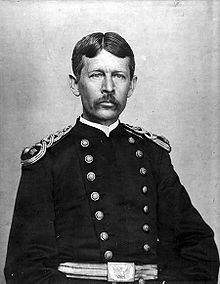
Back ولتر ريد Arabic ولتر ريد ARZ ওয়াল্টার রিড (চিকিৎসাবিজ্ঞানী) Bengali/Bangla Walter Reed Catalan Walter Reed German Walter Reed Esperanto Walter Reed Spanish Walter Reed Basque Walter Reed French Walter Reed Irish
Walter Reed | |
|---|---|
 | |
| Born | September 13, 1851 Gloucester County, Virginia, U.S. |
| Died | November 23, 1902 (aged 51) Washington, D.C., U.S. |
| Buried | |
| Allegiance | |
| Service | |
| Years of service | 1876–1902 |
| Rank | Major |
| Alma mater | University of Virginia New York University Johns Hopkins University |
| Spouse(s) | Emilie Lawrence (m. 1876) |
| Children | Walter Lawrence Reed (born December 4, 1877, Ft. Apache) Emilie Reed (called Blossom) (born July 12, 1883, Ft. Omaha) Susie Reed (adopted aboriginal American child) |
Walter Reed (September 13, 1851 – November 22, 1902) was a U.S. Army physician who in 1901 led the team that confirmed the theory of Cuban doctor Carlos Finlay that yellow fever is transmitted by a particular mosquito species rather than by direct contact. This insight gave impetus to the new fields of epidemiology and biomedicine, and most immediately allowed the resumption and completion of work on the Panama Canal (1904–1914) by the United States. Reed followed work started by Finlay and directed by George Miller Sternberg, who has been called the "first U.S. bacteriologist".